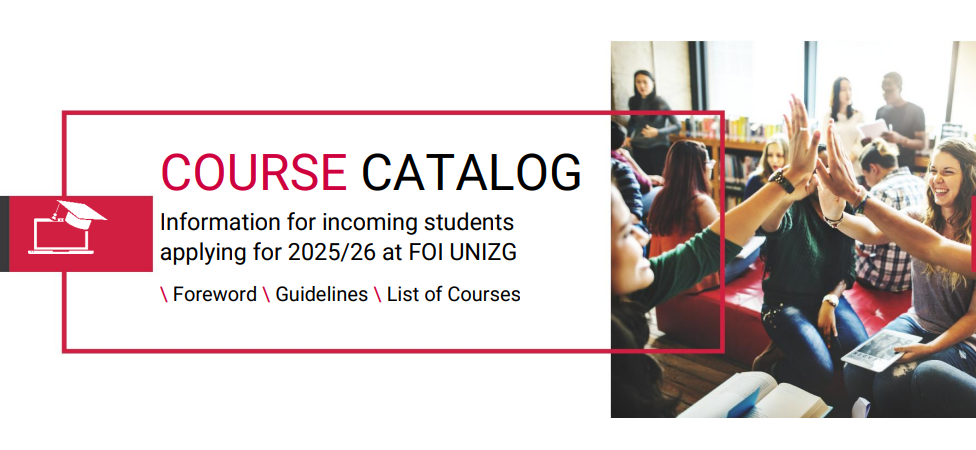
Within FOI UNIZG, various centers and research laboratories are available, many of which offer internship opportunities for students. We encourage students from our partner universities to consider these opportunities. To obtain further details about internships, please select the specific center or laboratory that interests you.
- Artificial Intelligence Laboratory (AI Lab)
- Center for Forensics, Biometrics and Privacy
- Internet of Things Laboratory (IOT Lab)
- International Relations Office & Career Development Center
- Laboratory for Applied Software Engineering
- Laboratory for Design of Program Interfaces, Internet Services and Videogames
- Laboratory for Generative Programming and Machine Learning
If you are interested or in need of further information, feel free to contact the FOI International Relations Office at international@foi.unizg.hr.



